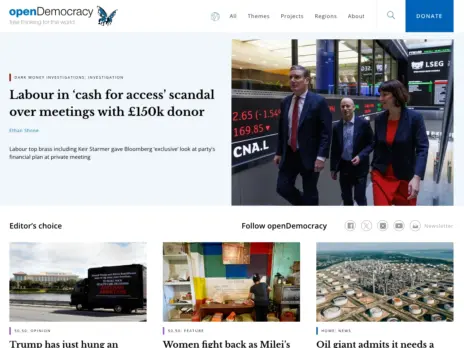It’s the job of a banker to measure risk, and then place a price upon it. Where risk increases, bankers ratchet up interest rates. If you’re a big risk, money becomes expensive.
The problems start when you look at this process from the perspective of the real economy. From this angle, bankers start to resemble psychopathic hooligans, fond of kicking businesses when they’re down.
Last week, Johnston Press refinanced £485m-worth of debt with its banks. The company had no choice in the matter: some of its debts were starting to fall due.
According to finance director Stuart Paterson, ‘the initial all-in interest cost’of the company’s refinanced loans is ‘in the region of 10%”. Previously, it was around 5%. The change has been described by John Fry, the company’s chief executive, as “very painful”.
Certainly, the maths are grim. Last year, Johnston Press would have paid £24m in interest on its £485m debt. This year, it will attempt to pay approximately £48m.
Of course, when you take out a loan, it’s advisable to look at the APR, or annual percentage rate. This represents the true cost of money, including all of the hidden charges. Doing this in the case of Johnston Press produces truly head-spinning results. These, in turn, suggest that John Fry and Stuart Paterson are masters of understatement.
Let’s start out with the various fees and inducements. In return for doing a deal in an entirely non-competitive market, for example, the 22 lending institutions involved in this refinancing will receive fees of approximately £12m. (That’s enough to buy a second-hand Boeing 737, or to employ 480 journalists on £25,000 a year).
Professional fees paid to lawyers and the like will account for a further £3m or so (enough to employ a further 120 journalists for a year).
Next, there are the shares that Johnston Press has offered to the banks as a sweetener. At current prices, the 5% of existing share capital offered to the banks is worth £12.2m. (That’s another 737; another 500-odd journalists’ jobs.)
Although shareholders, rather than the company, will bear this cost, it still represents income for the banks. A source close to Johnston Press this week described the shares as “additional upside” for the banks “in addition to shedloads of interest”.
At this point, the running total for bank payments comes to £75.2m during the next year. Remarkably, this equates to an annualised interest rate of neither 5% nor 10%, but 15.5%.
This, remember, is before Johnston Press repays any of its outstanding loans. Here, too, the terms of the deal are draconian. In addition to everything else, the company has promised to repay £85m of debt by next May.
Now clearly, this is a lot of money for a rapidly-shrinking regional newspaper publisher that turned in £27.5m in pre-tax profits during the first six months of this year.
No doubt the bankers understand the risks involved. Almost certainly, this explains why the refinancing deal includes a ban on capital expenditure above certain (unspecified) limits at Johnston Press.
To enforce this ban, the bankers will send their representatives into the company every year between now and 2012 to go through the books. Their task will be to check that Johnston Press isn’t investing in the future of the business to an extent that endangers remittances to the City of London.
Despite this, there remains a chance that the company won’t be able to repay that £85m by next May. At this point an additional piece of exotica rears its head: penal interest rates known to bankers as payment in kind (or PIK) margins.
In the case of Johnston Press, these additional interest charges start off at 1.5% and increase over time for as long as the £85m remains unpaid. Importantly, they will be levied on the whole of the company’s outstanding debt, not just the £85m.
Johnston Press hasn’t disclosed how high these penal additional interest rates could go. But in a similar refinancing recently agreed with the housebuilder Taylor Wimpey, the surcharges started at 1.5% and rose to 10%.
During the next year, therefore, it’s possible that Johnston Press could find itself effectively paying interest rates of 20% or more on its debts.
In the run-up to last week’s debt refinancing, Margareta Pagano of the Independent On Sunday argued that it would be ‘inconceivable’for the banks to ‘pull the plug’on Johnston Press.
Pagano pointed out that HM Government owns 70% of RBS and 43% of Lloyds Banking Group. Both lent sizeable sums to Johnston Press during the boom years. The government, she added, wouldn’t be prepared to see such a big Scottish employer go down the tubes only months before an election.
Of course not. That’s precisely why what the banks have engineered a much quieter and more lucrative fate for Johnston Press.
Measure the costs as you wish: in terms of Boeing 737s. Or in terms of the hundreds, if not thousands, of jobs that will be destroyed.
The effects of this exercise in corporate vampirism will be deep and long-lasting. What used to be a newspaper publishing company has become a machine for generating profits on behalf of the masters of the universe.
Email pged@pressgazette.co.uk to point out mistakes, provide story tips or send in a letter for publication on our "Letters Page" blog






